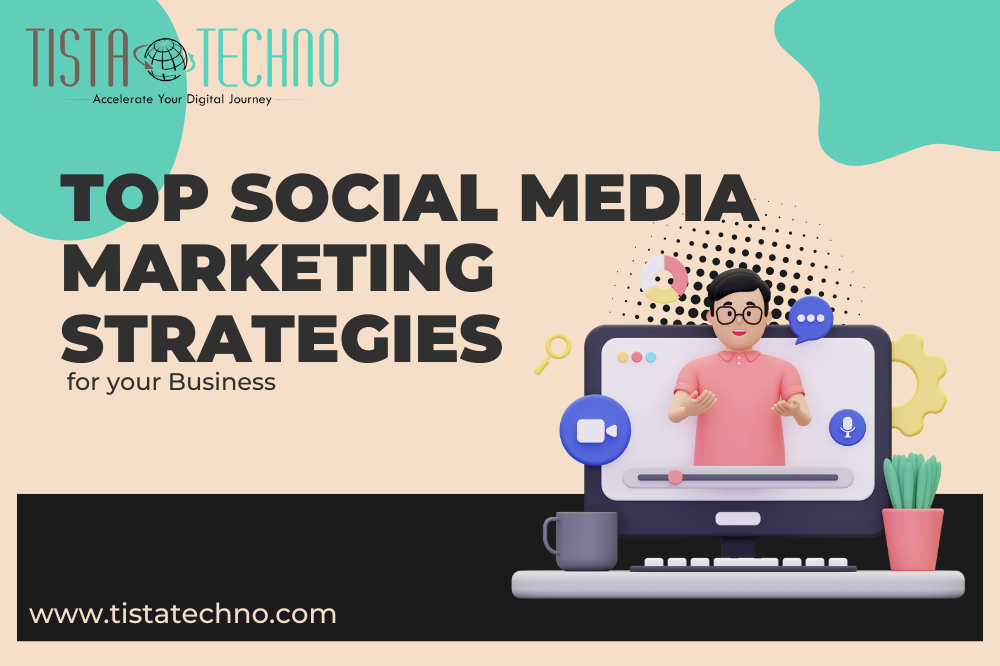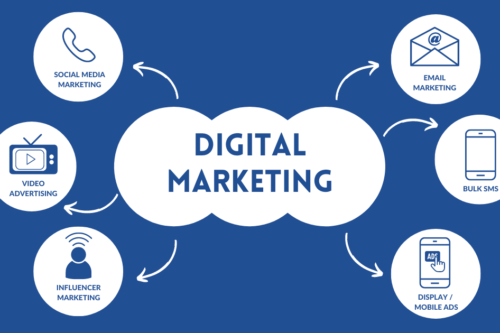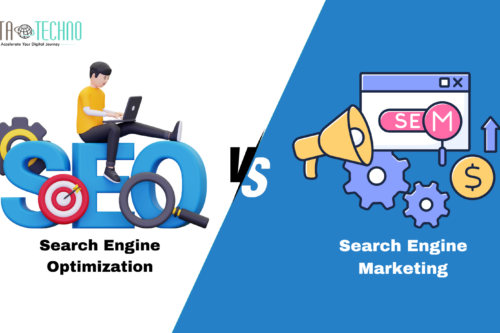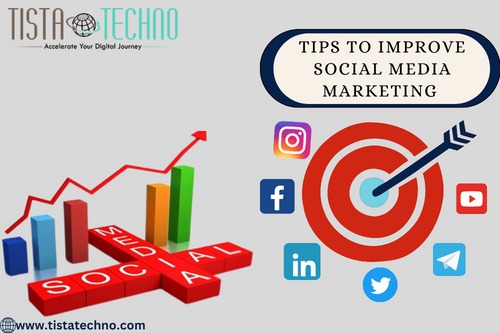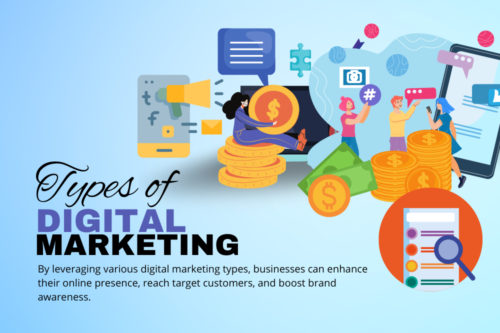Social media marketing has become an indispensable tool for businesses seeking to thrive in the highly competitive landscape. As the world becomes increasingly connected, social media platforms play a pivotal role in reaching and engaging with target audiences like never before.
With billions of active users across various platforms, businesses have the unparalleled opportunity to connect directly with their customers, build brand loyalty, and foster meaningful interactions.
However, merely having a presence on social media is not enough; the key lies in crafting effective social media strategies that align with specific business goals.
Whether it’s boosting brand awareness, driving website traffic, or increasing conversions, a well-planned social media approach can be a catalyst for success.
In this digital frontier, businesses must understand the immense potential of social media marketing and harness its power to stay relevant, competitive, and ahead of the curve.
1st Social Media Marketing Strategy: Know Your Audience

Understanding your target audience’s preferences and behaviors on social media is crucial for any successful social media marketing strategy. By delving into your audience’s interests, pain points, and habits, you can create content that resonates with them on a deeper level.
Social media analytics and insights play a vital role in this process, providing valuable data on engagement, demographics, and content performance.
With this data at hand, you can identify trends, preferences, and peak activity times, allowing you to fine-tune your content and posting schedule for maximum impact.
Knowing your audience also enables you to tailor campaigns that speak directly to their needs and desires, leading to better engagement and higher conversion rates.
Personalized content that addresses the specific interests of your target audience builds trust and credibility, fostering stronger connections with your brand.
Moreover, understanding your audience helps you allocate your resources effectively by focusing on the platforms and content types most preferred by your potential customers.
2nd Social Media Strategy: Set Clear Goals and Objectives

Setting clear goals and objectives is a fundamental step in any effective social media marketing campaign. By adopting the SMART approach (specific, measurable, achievable, relevant, and time-bound), businesses can define their social media aspirations in a precise and actionable manner.
Specific goals help clarify the desired outcomes, while measurable goals ensure that progress can be tracked and quantified. Achievable goals strike a balance between ambition and practicality, ensuring they are within reach.
Relevant goals align with the overall marketing and business objectives, providing purpose and direction. Time-bound goals establish a sense of urgency and create a clear timeframe for achieving results.
Common social media marketing goals encompass a range of outcomes. Brands often aim to increase brand awareness to enhance their visibility and recognition.
Driving website traffic is another popular objective to direct more users to their online platforms. Lead generation through social media can help capture potential customers’ interest and nurture them into conversions.
Clear objectives not only define the destination but also serve as a roadmap for selecting appropriate social media strategies. Each goal requires a tailored approach, and by knowing exactly what they want to achieve, businesses can align their content, advertising, and engagement tactics accordingly.
3rd Social Media Marketing Strategy: Choose the Right Social Media Platforms

Choosing the right social media platforms is a critical decision that can significantly impact the success of a brand’s social media marketing efforts. Understanding the landscape of popular platforms and their respective user demographics is essential.
Each platform has a unique user base and caters to different interests and demographics. Businesses must research and identify where their target audience is most active to maximize their reach and engagement.
It’s crucial to have a clear understanding of the objectives and goals set in the earlier stage of planning. Clear objectives guide the selection of appropriate social media strategies, as they help businesses identify which platforms align best with their objectives.
For instance, a brand seeking to showcase visual content may find Instagram or Pinterest more suitable, while a B2B company may focus on LinkedIn for professional networking and lead generation.
Maintaining a consistent brand presence across chosen social media marketing platforms is equally important. Consistency in messaging, branding elements, and tone of voice helps reinforce brand identity and build trust with the audience.
It also allows customers to recognize and connect with the brand across various social media marketing channels, leading to stronger brand loyalty and recognition.
4th Social Media Marketing Strategy: Create Engaging Content
Creating engaging content is essential for capturing the attention and interest of social media users so that your social media marketing strategy can come into force. High-quality content that resonates with the audience is more likely to be shared, liked, and commented on, leading to increased visibility and reach.
Relevance is equally crucial, as content that aligns with the interests and needs of the target audience has a higher chance of sparking engagement and interactions.
Diversifying content formats is a powerful way to keep the audience engaged. Images are eye-catching and easily shareable, while videos can convey messages compellingly and dynamically.
Infographics are excellent for presenting data and information in a visually appealing and digestible way, while live streams offer real-time interactions and a sense of immediacy.
Storytelling is a compelling technique that connects with emotions and creates a memorable experience for the audience. Sharing authentic and relatable stories helps humanize the brand and fosters a deeper connection with followers.
Additionally, user-generated content leverages the creativity of the audience, turning them into brand advocates and encouraging participation. That can immediately help you skyrocket your social media marketing strategy.
By having clear objectives from the start, businesses can develop content that aligns with their goals in social media marketing. Whether it’s increasing brand awareness, driving sales, or nurturing leads, having a strategic direction guides the creation of relevant and purpose-driven content, maximizing its impact and effectiveness.
5th Social Media Strategy Marketing: Leverage Influencer Marketing
Leveraging influencer marketing can be a game-changer for businesses seeking to expand their reach and build brand credibility. Partnering with influencers in your niche or industry offers numerous benefits in social media marketing.
Influencers have established a loyal and engaged following, and their recommendations carry significant weight among their audience. By collaborating with influencers who align with your brand values, you gain access to a targeted and relevant audience that is more likely to be interested in your products or services.
Influencers can act as powerful brand advocates, promoting your offerings in an authentic and relatable manner. Their endorsement helps build trust with their followers, leading to increased brand credibility.
Moreover, influencer marketing allows you to tap into new audiences beyond your existing customer base. This expanded exposure can lead to more followers, website traffic, and potential customers.
When identifying the right influencers, it’s crucial to look beyond follower count and focus on relevance, engagement, and authenticity. Influencers who have a genuine connection with their audience and a history of successful brand collaborations are ideal partners.
Collaborating with influencers on creative and authentic campaigns ensures that their endorsement feels natural and fits seamlessly with their content, resonating well with their followers.
6th Social Media Strategy: Utilize Paid Advertising
Utilizing paid advertising on social media is a powerful way to enhance a brand’s online presence and reach specific target audiences. Paid social media advertising offers advanced targeting options, allowing businesses to tailor their campaigns based on demographics, interests, behaviors, and more.
This precision targeting ensures that ads are shown to the most relevant and potential customers, increasing the chances of engagement and conversions.
Various advertising options are available on different social media platforms. These options include sponsored posts, carousel ads, video ads, lead generation ads, and more.
Each format serves a different purpose and caters to various marketing objectives, providing businesses with flexibility in choosing the most suitable ad type for their goals.
Setting a well-defined budget is crucial when running paid campaigns. By establishing a clear budget, businesses can control their ad spend and allocate resources effectively.
Additionally, tracking the return on investment (ROI) is essential to measure the success of paid campaigns. Monitoring key performance indicators (KPIs) such as click-through rates, conversions, and cost per acquisition helps businesses assess the effectiveness of their ad campaigns and make data-driven decisions to optimize future efforts.
7th Social Media Marketing Strategy: Engage and Interact with Your Audience
Engaging and interacting with your audience on social media is a fundamental aspect of building strong relationships and fostering brand loyalty.
Actively engaging with followers demonstrates that you value their feedback and opinions, leading to a sense of connection and community. Responding to comments and messages promptly shows that you are attentive to their needs and concerns, creating a positive impression of your brand.
Social media has evolved into a vital customer service tool. Many customers turn to social platforms to voice their queries or complaints, expecting quick and personalized responses.
Addressing customer inquiries publicly not only resolves their issues but also showcases your commitment to excellent customer service. This transparent approach can also influence potential customers, who observe how well you handle customer interactions.
To foster a community on social media, encourage two-way conversations, and create opportunities for meaningful interactions. Organize live Q&A sessions, polls, or contests to actively involve your audience.
Sharing user-generated content and acknowledging their contributions make followers feel valued and appreciated. Building a strong community around your brand enhances brand loyalty and advocacy, as satisfied customers become brand ambassadors, promoting your offerings to their networks.
8th Social Media Marketing Strategy: Analyze and Optimize Your Strategies
Another social media marketing strategy is analyzing and optimizing social media strategies is essential for ensuring continuous growth and success. Regularly monitoring social media metrics and performance provides valuable insights into the effectiveness of your efforts.
Key performance indicators (KPIs) such as reach, engagement, conversions, and click-through rates offer a comprehensive view of how your content is resonating with the audience and driving desired actions.
Understanding the significance of each KPI is vital for making informed decisions. High reach indicates increased visibility, while high engagement demonstrates audience interest and interaction. Conversions signify the effectiveness of your call-to-action, converting followers into customers or leads. By regularly tracking these metrics, you can identify patterns and trends, allowing you to optimize your content strategy and posting schedule for better results.
Data-driven decision-making is the cornerstone of successful social media strategies. Use the insights gained from analyzing metrics to fine-tune your content, identify the best-performing posts, and focus on platforms that deliver the most value.
Experiment with different content formats, posting times, and audience targeting based on data, enabling you to continually improve your social media performance over time.
Conclusion
In conclusion, this blog has highlighted the significance of implementing top social media marketing strategies to thrive in the digital landscape.
We emphasized the importance of understanding your audience’s preferences and behaviors to create tailored content and campaigns. Setting clear, SMART goals and objectives was deemed essential to guide the selection of appropriate social media strategies.
Choosing the right social media platforms, creating engaging content in various formats, and leveraging influencer marketing were discussed as pivotal components for success.
Additionally, we explored the role of paid advertising in reaching specific target audiences and the importance of tracking ROI.
As businesses navigate the dynamic world of social media, we encourage them to embrace experimentation and adaptation. Staying up-to-date with ever-evolving social media trends is critical in maintaining a competitive edge.
By harnessing the potential benefits of effective social media marketing, businesses can experience enhanced brand awareness, increased engagement, and improved customer loyalty, ultimately driving business growth in today’s digital age.
Suggested URL: Mastering Social Media Marketing in 2023: Top Strategies for Business Success

